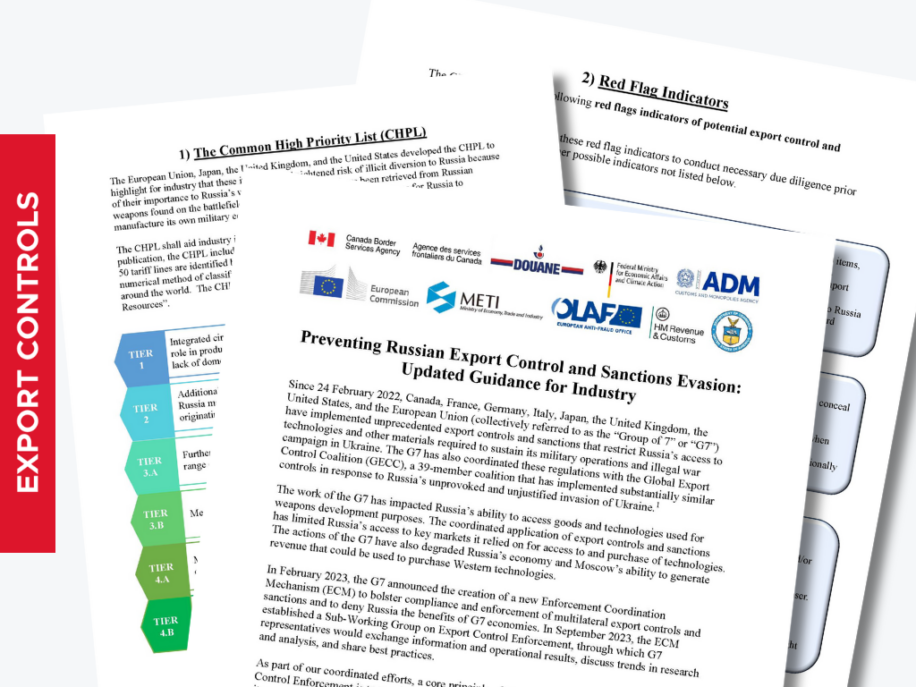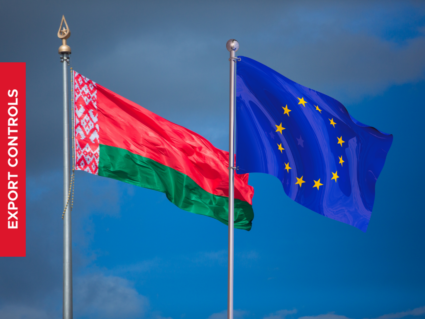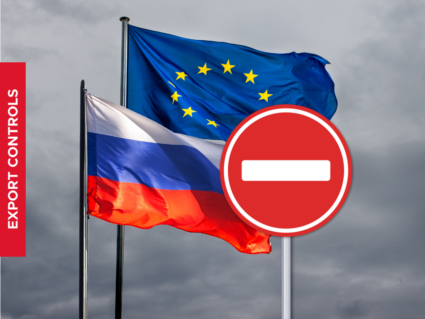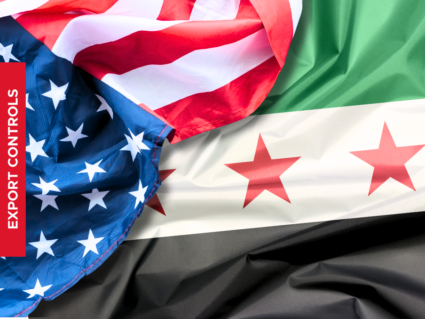Preventing Russian Export Control and Sanctions Evasion: an updated guidance for Industry
 On 24 September 2024, the Group of Seven (G7), consisting of Canada, France, Germany, Italy, Japan, the United Kingdom, the United States and the European Union, issued new guidelines for companies to strengthen export controls and sanctions against Russia through a more effective prevention of circumvention. The aim is to prevent Moscow from gaining access to essential technologies and materials to support its military campaign in Ukraine.
On 24 September 2024, the Group of Seven (G7), consisting of Canada, France, Germany, Italy, Japan, the United Kingdom, the United States and the European Union, issued new guidelines for companies to strengthen export controls and sanctions against Russia through a more effective prevention of circumvention. The aim is to prevent Moscow from gaining access to essential technologies and materials to support its military campaign in Ukraine.
Since 2022, following the Russian invasion of Ukraine, the G7 has intensified sanctions, also working with the Global Export Control Coalition (GECC), a 39-member coalition that has implemented substantially similar controls in response to Russia’s invasion of Ukraine. These restrictions have progressively restricted Russia’s access to key markets for advanced technologies.
In February 2023, the G7 announced the creation of a new Enforcement Coordination Mechanism (ECM) to bolster compliance and enforcement of multilateral export controls and sanctions and to deny Russia the benefits of G7 economies. Most recently, in September 2023, the ECM established a Sub-Working Group on Export Control Enforcement, through which G7 representatives would exchange information and operational results, discuss trends in research and analysis, and share best practices.
The new guidelines published by the Sub-Working Group provide guidance to industry on preventing the diversion of controlled items to Russia, including through third countries. Screening tools and due diligence practices are also presented to assist industry in identifying Russian evasion practices and complying with GECC controls, thereby protecting their technology from misappropriation, preventing reputational harm, and mitigating liability risk while supporting the continued success of our export controls and sanctions.
The Common High Priority List (CHPL)
The European Union, Japan, the United Kingdom, and the United States developed the Common High Priority List (CHPL) to highlight for industry that these items pose a heightened risk of illicit diversion to Russia because of their importance to Russia’s war efforts. These items have been retrieved from Russian weapons found on the battlefield or have been identified as essential items for Russia to manufacture its own military equipment.
Read the news.
Activate ZPC Monitoring, our professional service of regulatory updates, alerts, analyzes and insights on export controls and geopolitical risk.



